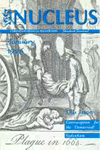The tenth commandment
Nitpickerus: What is the tenth commandment?
Dionysius: 'You shall not covet.'[1,2]
Nitpickerus: That's just Christian jargon to me. What is covetousness?
Dionysius: Essentially it's distorted desire: either inappropriately focused (hamad)[1] or selfishly directed (awa).[2]
Nitpickerus: So what can't we covet?
Dionysius: Our neighbour's house, land, wife, servants, livestock. . . in fact anything that belongs to our neighbour.'[1,2]
Nitpickerus: You make God sound like the thought police. What 's wrong with a little harmless fantasising?
The dangers of covetousness
Dionysius: Covetousness is extremely harmful: not just for ourselves, but for others and for society as well . It can distract us,[3] frustrate us,[4] or lead us to actions which can damage other people.[5] David's desire for another man's wife lead to adultery, deceit and murder.[6] Ahab's desire for another man's land resulted in perjury, murder and theft.[7] Achan's desire for another's property resulted in the death of his entire family and many of his countrymen.[8]
Nitpickerus: And all these sins began with coveting?
Dionysius: Yes. Jesus equates wrong desire with wrong action.[9] He is as concerned about inward thoughts as he is about outward behaviour.[10] We should abstain from evil desires Nitpickerus.[11] They lead to death.[12] These personal tragedies are recorded so we'll take warning, and avoid making the same mistakes.[13]
Nitpickerus: Property, possessions, spouses. I agree that they can all engender envy, but surely they're not the only things we can covet. What do you suppose God meant by 'anything else'?
Dionysius: Think of some of the examples in Scripture. Cain coveted Abel's blessing.[14] Joseph's brothers envied his father's affection.[15] Saul was jealous of David's popularity.[16] Simon wanted Peter's spiritual gifts.[17] You can see how destructive envy can be.[18]
Nitpickerus: Is it wrong to covet another Christian's ministry?
Dionysius: Yes. This was the very thing that threatened the integrity of the Corinthian church. People were wishing they were someone else, instead of recognising their own intrinsic worth to God, and indispensability to the body of Christ.[19] This attitude was destroying 'body life'.
Nitpickerus: What attitude should they have had?
Dionysius: They should have realised that their natural talents and spiritual gifts were given by grace (undeserved)[20] and distributed according to God's initiative (not theirs).[21] We should too. Pride and envy are equally inappropriate. Rather we should get on with the task of fulfilling the role God has for us.[22] If we covet the ministries of others, then others will suffer from our sin: not only the evil we do out of envy, but also the good we fail to do by not fulfilling our own calling.
Isn't covetousness necessary?
Nitpickerus: But surely we have to be motivated by something? Doesn't the Bible itself say that 'all labour and all achievement spring from man's envy of his neighbour'?[23] Isn 't covetousness essential for progress? Isn't a little competition necessarv for life to survive?
Dionysius: You misunderstand Nitpickerus. God doesn't want us to purge ourselves of all desires. We're called to love him with all our heart, soul and strength[24] - mind, emotion and will. There is a godly motivation to succeed, but it's one that seeks God's glory, not ours.[25]
Nitpickerus: So some desires are good.
Dionysius: Absolutely. God doesn't want us to resist or extinguish all desire. A stoic or a Buddhist might follow that line, but it's not at all Christian. Having desires is part of being made in the image of god. God himself has desires.
Nitpickerus: Such as?
Dionysius: He desires mercy and faith.[26] He desires to achieve his purposes[27] (and of course he wil1). Perhaps most of all he desires the devotion of his chosen people.[28]
Nitpickerus: Isn't that a weakness?
Dionysius: What strength is there in indifference and impassivity? An emotionally sterile God might engender fear, but hardly praise and worship.
Nitpickerus: So what can we legitimately desire?
Right desires
Dionysius: Good things:[29] food, drink, clothing.[30] rest.[31] There's nothing Christian about asceticism - rejecting the good gifts of a good creator. Jesus himself desired and used them. Sexual pleasure (within marriage of course) is similarly right and good.[32]
Nitpickerus: Can't these things get out of perspective?
Dionysius: Even legitimate desires can assume a wrong proportion, if we become preoccupied with them. God's Spirit is one of self-control.[33] Likewise wisdom,[34] the opportunity to serve[35] and spiritual growth[36] are good things to desire but they should never assume the primary place in our lives. Most of all we should desire God himself.[37] When we appreciate who he is and what he has done for us other things fade into insignificance. As the psalmist declares: O God, you are my God... my soul thirsts for you... my soul will be satisfied... [38] This is surely why we are told that covetousness is idolatry'.[39] It seeks to substitute some created thing for the creator, the only one who can truly satisfy.
Nitpickerus: What then is the answer to covetousness?
Dionysius: It's to realise that God is faithful and utterly trustworthy. He promises to provide us with all that we need; provided that we trust him, seek him and commit ourselves to him.[40] There is no need to covet. When we really understand this our attitude will be one of prayerfulness, joyfulness and thankfulness,[41] knowing that whatever our circumstances he is in control.[42] Contentment is the opposite of covetousness, and 'godliness with contentment is great gain'.[43]
































